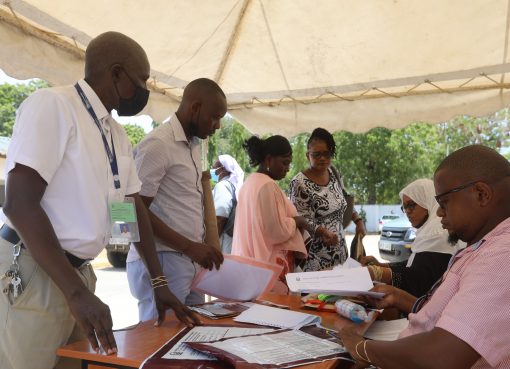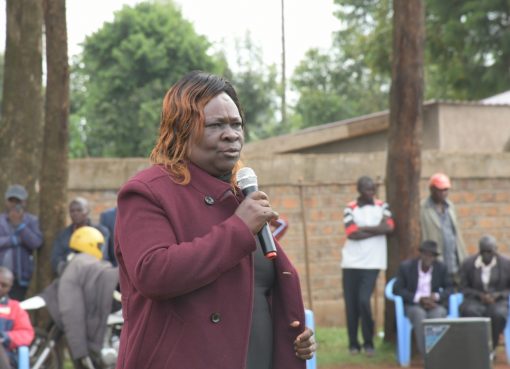
Over 400 schools in Kitui have ordered school uniforms before schools re-open in 2019 as a way to boost Kitui County Textiles Centre (KICOTEC) market entry, the county’s multi-million premier garment factory.
The factory, which is located about four kilometers’ West of Kitui Town, sits on government land that hosted the upgraded Syongila Youth Polytechnic now turned garment factory.
Kitui Governor Mrs. Charity Ngilu could not hold her excitement last week as she waited in anticipation to witness the new look garments made in the county in the state-of-the-art garment factory that will manufacture school uniforms and other fabrics for local and export market.
The 24 hour factory has employed 600 youth, majority of whom had undergone a three month garment making training course at Trendy Vocational Institute in Nakuru sponsored by the county to harness their vocational skills in readiness to tap into the lucrative garment making opportunities.
“Every year, Kitui County residents spend close to Sh 3 billion annually to purchase school uniforms from other counties. We want to close that gap by making our own garments for our institutions and buy them locally,” said Governor Ngilu.
She lamented that over 90 per cent of this money leaves Kitui to other counties because of lack of a uniform-making factory adding that KICOTEC will remedy the situation.
Governor Ngilu said that with such money in circulation, the county is set to reap big in terms of creation of employment opportunities for the youth, women and people living with disabilities.
School heads within the county have pledged to support the garment industry in Kitui with the label ‘Made in Kitui’ on the understanding that the high quality fabrics will retail at 20 per cent below the prevailing market rates.
According to Governor Ngilu, besides the factory creating hundreds of direct and indirect jobs, it will also help to retain the millions of shillings that parents in the county use to buy school uniforms from manufacturers in Nairobi and other counties.
The factory, which is modelled after the Export Processing Zone (EPZ) garment industrial unit, will run 24 hours on different working shifts to ensure optimum output to meet clients’ expectations.
“We have installed 145 electric sewing machines together with other embroidery and pressing machinery to ensure the fabrics meet the highest quality standards,” added the Governor.
Kitui County has an estimated 486,000 students in both primary and secondary schools, the factory has a ready market and is expected to stimulate the local economy in a bid to spur socio-economic development.
Deputy Governor Dr Wathe Nzau during a tour of Mwingi Northin 2017 during the distribution of free cotton certified seeds encouraged farmers to engage in cotton farming as an economic activity alongside other farming practices.
The same sentiments were echoed by Kitui Ginneries Operations Manager, Mrs. Mary Mwinzi who revealed that cotton is one of the bestselling cash crops in the country.
She said cotton was also drought resilient, unlike maize and beans, and added the crop can generate income amongst farmers in the arid county.
“I urge Kitui residents to shift to cotton farming because there is a ready market for the produce,” affirmed Mwinzi, adding that there was high demand for it, both locally and globally.
She further noted that farmers are guaranteed of good pay upon harvest and delivery.
“Farmers should also take advantage of free distribution of seedlings by the State, to embark on bulk production of cotton to boost their income,” she appealed. Cotton has a wide range of products, including lint, biodiesel, washing detergent and animal feed, among others,’ said Mwinzi.
The initiative is jointly funded through a partnership between the County Government of Kitui, Meru and Kitui Ginneries and the Directorate of Fibre Crops.
Meru Ginneries Managing Director Mr. Alex Kieme said the company would supply 6.3 metric tonnes of certified cotton seeds, crop chemicals and train farmers in Kitui County on crop husbandry.
Kieme noted that the firm would pay cash upon delivery of the harvest and hailed the county government for negotiating an improved cotton buying price from sh42 to sh52.
By Yobesh Onwong’a





